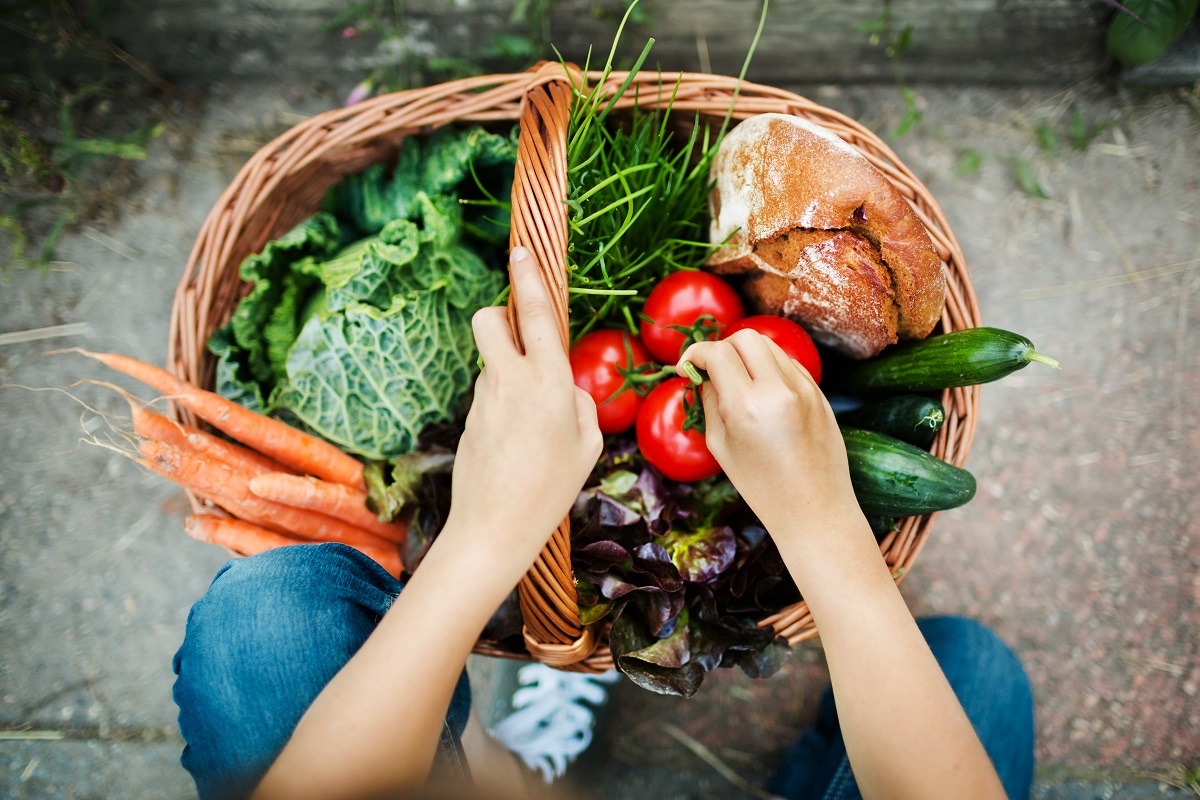by freelance writer Riley Herder
A timeless practice has re-emerged in recent years as a sort of trend, and it’s one worth paying attention to: seasonal eating. Seasonal eating is the consumption of produce strictly according to its proper growing season. Most typically this is produce grown in or near your local community. There are numerous reasons why this type of eating is beneficial, aside from the fact that humans have been doing it for thousands of years.
>> Are you looking for a housekeeper? Find one in your area now.
Perhaps the most noticeable difference between produce grown in peak season and that grown out of season is the taste. You know what I’m talking about if you’ve ever had fresh-picked apples in the fall or a tomato straight off the vine in the summer. There is simply no contest: Out of season produce from the supermarket just doesn’t taste as good.
Crops produced out of season, or imported from somewhere they are in season, will either be treated with ripening agents or sit on a truck for an extended period of time, or both. This results in loss of flavour. Naturally ripening fruits and vegetables will taste much richer. If you aren’t sure, take a trip to your local farmer’s market and try some samples. Or pick up some organic tomato starts and try your own!
Better for Your Body
Ancient cultures had an impressive understanding of how to get the most out of their crops. In today’s fast-paced world, much of this wisdom has been tossed out, often in pursuit of more cost-effective agricultural methods.
This is unfortunate because what those growers of old understood was that crops not only naturally tasted better in their proper season, but the food was actually healthier. We now know that fruits and vegetables contain more vitamins and nutrients when grown in their peak season than in other times of the year.
In addition to having more essential vitamins, local seasonal produce is also far less likely to use harmful pesticides which can negatively affect your health as well.
Better for the Environment
When you are eating according to the seasonal growing calendar, you are more likely to be purchasing produce grown locally. This helps cut down on fuel emissions that result from shipping food around the globe.
Did you know that in many parts of the Western world, nearly half of the produce consumed is imported? This is just another reason why seasonal eating is a good habit to cultivate. Purchasing local, seasonal produce reduces your carbon footprint. It’s also a terrific way to support your community.
How to Get Started
If you aren’t used to it, it can be a little tricky to know where to begin. A common concern is that it will be much more expensive to choose seasonal produce. However, this is typically not the case. Produce grown out of season is in less supply, or involves lots of extra costs for transporting, and these can drive up the market price. Plus, if you can become savvy at preserving excess food by freezing or canning (more on that below), you’ll also reduce waste and save money.
Start by finding out what produce is in season at what times of year. Note that this is different depending on where in the world you live. Here is a seasonal food calendar for the UK.
Get Connected with Local Growers
In addition to mastering the art of what to grab and what not to grab from the supermarket, you can pick up lots of seasonal produce from the local farmer’s market. Because it’s grown locally, the produce is likely to be grown and harvested in peak season. Plus, you can chat with the farmers who are always happy to share tips, recipes, and more useful information for your seasonal eating journey.
Make It Last!
My wife and I (and in recent summers, our daughter) enjoy going to “pick it yourself” farms to fill up our own buckets of berries in the summer and apples in the fall. There is something so nice about getting the produce yourself off the vine, bush or tree. The problem is, you almost always end up with more than you need. But that problem has a wonderful solution that lets us have quality produce all year long: Freeze it!
If you learn to freeze it properly, you can preserve most of the taste and nutrients your produce had when it was fresh. Note that every type of produce is different, and some freeze much better than others. Apples, for instance, don’t freeze up quite as well, so we make them into applesauce and can them! You can do this too, but it’s a bit more involved, and does not preserve as many vitamins.
Save Money
Remember when I said you can save money buying in season? Here’s an example of how: The farm we buy blueberries from in the summer sells frozen berries in the wintertime for at least double the price! I always smile when I see it in the store, knowing that I’ve still got a few bags of the same berries in our freezer from our last trip to the farm.
>> Are you looking for a housekeeper? Find one in your area now.
